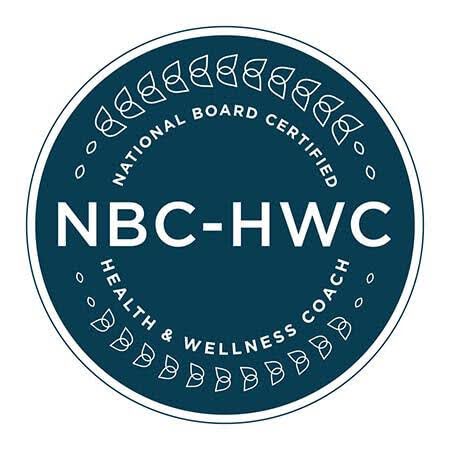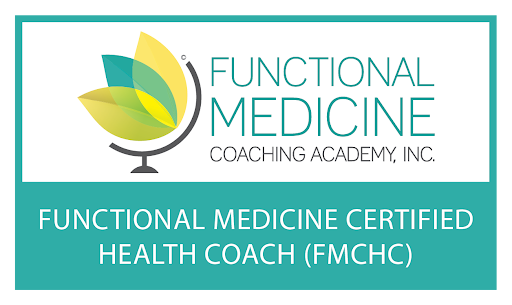Vitality Unleashed
A program for wellness-driven mid-lifers under the gun
Trade health risks for vitality & longevity with a tailored regimen.


Cholesterol Combat
Masterclass
Master the subtle art of cholesterol management with a program specially designed to equip you with knowledge and practical steps to defeat high cholesterol.

Family Fulfilment
Package
Achieve health goals and win your family's admiration with a wellness program nuanced to balance professional commitments, family expectations, and personal health.

Doctor's Delight
Solution
Turn your healthcare provider's concerns into compliments with a heart-healthy program combining strategic nutrition and exercise, aimed at significantly lowering heart disease risks without medication.

About Us
Donovan Maycock, a National Board-Certified Health and Wellness Coach, is devoted to transforming lives with expertise in managing high cholesterol. Bringing over a decade of experience as both a Nutrition and Wellness Consultant and Functional Medicine Health Coach, Maycock serves a clientele committed to health improvement. His mission: to guide professional men in their 40's and 50's under medical and familial pressure to enhance heart health and evade medication. His offering: a purpose-built Cholesterol Reduction program, blending optimal nutrition and exercise regimes. The result: healthier clients, lower cholesterol levels, and a better quality of life – achievable, sustainable, and within grasp. As Donovan says, "It's about showing the steps - not just telling - to reach potential health heights."
YOU MAY HAVE SEEN ME ON


Testimonials
I was 25 lbs overweight, my energy levels were low along with my self-esteem. After two weeks on the nutritional plan from Coach Donovan the results were immediate. More energy for work and play. My self-confidence and self-esteem increased significantly. I remember running out of breath and soaking my shirt with sweat just to walk up a flight of stairs at work. At 55 years of age I feel like 35 again. There are no limits to what I want to do.
James C
Many people invest money into a fitness personal trainer. I decided to invest in a nutritionist as my personal food trainer. Everyone knows you should eat healthier. However, not everyone knows exactly what that means. With Coach Donovan I learned what it means! I look better, I feel better and I sleep better. I’m excited about this program.
R.G.
I have been working with Donovan over a period of 3 years and received excellent nutrition advice, including recipes, daily meals, and shopping advice that was so helpful. Donovan taught me how to keep a food log online, and how to lift weights and this knowledge was critical to losing weight and keeping it off.
J
The program with Donovan was awesome. I lost 59 lbs and completely changed my eating habits. I highly recommend this program!!
Fred L.
Coach Donovan has been instrumental in guiding me towards a healthier lifestyle, with a particular emphasis on nutrition. When I embarked on this journey, my cholesterol levels were alarmingly high. At the age of 52, I was a prime candidate for a heart attack.
In 2017, my total cholesterol was 160, HDL was 30, and triglycerides were at 257. Seven years later, thanks to Donovan’s program, my health indicators have improved significantly. My cholesterol is now at 122, HDL at 52, and triglycerides at 64, making me as healthy as a 40-year-old.
In 2021, I underwent a Calcium Score test, which registered at 75. Since then, every cardiologist appointment has resulted in a clean bill of health.
I attribute this remarkable transformation to the invaluable education I received while working with Donovan. His guidance has truly made a difference in my life.
Ray L
Blog

A Comprehensive Guide to Lowering Cholesterol Levels: Strategies for Heart Health
Lowering cholesterol levels is a critical aspect of maintaining heart health and reducing the risk of cardiovascular disease. With heart disease being a leading cause of mortality worldwide, understanding effective strategies to lower cholesterol is essential for promoting overall well-being.
In this blog post, we will discuss the importance of cholesterol management, the factors that influence cholesterol levels, and evidence-based approaches to lowering cholesterol for optimal heart health.
Understanding Cholesterol
Cholesterol is a waxy, fat-like substance found in the blood and is essential for various bodily functions, including hormone production and cell membrane formation. However, elevated levels of cholesterol, particularly low-density lipoprotein (LDL) cholesterol, can lead to the buildup of plaque in the arteries, increasing the risk of heart disease and stroke.
High-density lipoprotein (HDL) cholesterol, often referred to as "good" cholesterol, helps remove excess cholesterol from the bloodstream, reducing the risk of cardiovascular complications.
Factors Influencing Cholesterol Levels
Several factors can influence cholesterol levels, including genetics, diet, physical activity, weight, age, and underlying health conditions such as diabetes and hypothyroidism. While some factors, such as genetics, are beyond our control, others, such as diet and lifestyle choices, play a significant role in determining cholesterol levels.
Understanding these factors and their impact on cholesterol metabolism is crucial for developing effective strategies to lower cholesterol and improve heart health.
Dietary Approaches to Lowering Cholesterol
A heart-healthy diet is a cornerstone of cholesterol management and plays a central role in lowering cholesterol levels. Key dietary recommendations for lowering cholesterol include:
1. Limiting Saturated and Trans Fats:
Saturated and trans fats found in foods such as red meat, processed meats, full-fat dairy products, fried foods, and commercially baked goods can raise LDL cholesterol levels. Opting for lean protein sources, low-fat dairy products, and healthier cooking methods such as baking, grilling, or steaming can help reduce saturated and trans fat intake.
2. Increasing Dietary Fiber:
Soluble fiber found in foods such as oats, barley, fruits, vegetables, and legumes can help lower LDL cholesterol levels by binding to cholesterol in the digestive tract and promoting its excretion from the body. Incorporating fiber-rich foods into meals and snacks can support cholesterol management and overall heart health.
3. Including Heart-Healthy Fats:
Monounsaturated and polyunsaturated fats, found in sources such as olive oil, avocado, nuts, seeds, and fatty fish, can help lower LDL cholesterol levels and increase HDL cholesterol levels. These fats also provide essential nutrients and support overall cardiovascular health when consumed in moderation.
4. Emphasizing Plant-Based Foods:
Plant-based diets rich in fruits, vegetables, whole grains, legumes, nuts, and seeds have been shown to lower cholesterol levels and reduce the risk of heart disease. These foods are naturally low in saturated fat and cholesterol and provide a variety of nutrients, antioxidants, and dietary fiber that support heart health.
Lifestyle Modifications for Lowering Cholesterol
In addition to dietary changes, lifestyle modifications can further support cholesterol management and improve heart health
1. Regular Physical Activity:
Engaging in regular physical activity, such as brisk walking, jogging, cycling, swimming, or aerobic exercise classes, can help lower LDL cholesterol levels, increase HDL cholesterol levels, and improve overall cardiovascular fitness.
Aim for at least 150 minutes of moderate-intensity aerobic activity or 75 minutes of vigorous-intensity activity per week, along with muscle-strengthening exercises on two or more days per week.
2. Achieving and Maintaining a Healthy Weight:
Excess body weight, particularly abdominal obesity, is associated with higher LDL cholesterol levels and an increased risk of heart disease. Losing excess weight through a combination of dietary changes, increased physical activity, and behavior modifications can help lower cholesterol levels and improve heart health.
3. Avoiding Smoking and Limiting Alcohol Consumption:
Smoking damages blood vessels reduces HDL cholesterol levels, and increases the risk of heart disease. Quitting smoking and avoiding exposure to secondhand smoke is essential for lowering cholesterol and reducing cardiovascular risk.
Additionally, limiting alcohol consumption to moderate levels (up to one drink per day for women and up to two drinks per day for men) can help support heart health.
4. Managing Stress:
Chronic stress can contribute to elevated cholesterol levels, high blood pressure, and other cardiovascular risk factors. Implementing stress-reduction techniques such as mindfulness meditation, deep breathing exercises, yoga, tai chi, or engaging in hobbies and activities that promote relaxation can help lower stress levels and support heart health.
5. Getting Adequate Sleep:
Quality sleep is essential for cholesterol metabolism, hormone regulation, and overall cardiovascular health. Aim for 7-9 hours of uninterrupted sleep per night and establish a regular sleep schedule to support optimal cholesterol levels and heart health.
6. Limiting Saturated and Trans Fats:
Saturated and trans fats are known to raise LDL cholesterol levels, increasing the risk of cardiovascular disease. Foods high in saturated fats include red meat, processed meats, full-fat dairy products, butter, cheese, and coconut oil.
7. Increasing Dietary Fiber:
Soluble fiber found in foods such as oats, barley, fruits, vegetables, and legumes can help lower LDL cholesterol levels by binding to cholesterol in the digestive tract and promoting its excretion from the body.
8. Including Heart-Healthy Fats:
Monounsaturated and polyunsaturated fats, found in sources such as olive oil, avocado, nuts, seeds, and fatty fish, can help lower LDL cholesterol levels and increase HDL cholesterol levels.
9. Emphasizing Plant-Based Foods:
Plant-based diets rich in fruits, vegetables, whole grains, legumes, nuts, and seeds have been shown to lower cholesterol levels and reduce the risk of heart disease. These foods are naturally low in saturated fat and cholesterol and provide a variety of nutrients, antioxidants, and dietary fiber that support heart health.
10. Consuming Omega-3 Fatty Acids:
Omega-3 fatty acids, found in fatty fish (such as salmon, mackerel, and sardines), flaxseeds, chia seeds, walnuts, and certain algae, have been shown to have beneficial effects on cardiovascular health. They can help lower triglyceride levels, reduce inflammation, and support overall heart health.
Medical Treatment Options for Lowering Cholesterol
In some cases, lifestyle modifications alone may not be sufficient to achieve optimal cholesterol levels. Commonly prescribed medications for cholesterol management include:
1. Statins:
Statin medications are the most commonly prescribed drugs for lowering LDL cholesterol levels. They work by inhibiting the liver's production of cholesterol and can significantly reduce the risk of heart attack, stroke, and other cardiovascular events.
2. Ezetimibe:
Ezetimibe is a medication that works by blocking the absorption of cholesterol from the digestive tract, leading to lower LDL cholesterol levels. It is often used in combination with statins or as an alternative for people who cannot tolerate statin therapy.
3. PCSK9 Inhibitors:
PCSK9 inhibitors are a newer class of medications that help lower LDL cholesterol levels by blocking the action of a protein that regulates LDL receptor recycling in the liver. They are typically reserved for people with very high cholesterol levels or those who cannot tolerate statin therapy.
4. Bile Acid Sequestrants:
Bile acid sequestrants are medications that bind to bile acids in the digestive tract, preventing their reabsorption and promoting the excretion of cholesterol from the body. They can be used alone or in combination with other cholesterol-lowering medications.
5. Fibrates:
Fibrates are medications that primarily target triglyceride levels but may also have modest effects on LDL cholesterol and HDL cholesterol levels. They work by activating a receptor called PPAR-alpha, which regulates genes involved in lipid metabolism.
6. Niacin (Nicotinic Acid):
Niacin, also known as vitamin B3, is a water-soluble vitamin that can help lower LDL cholesterol and triglyceride levels while increasing HDL cholesterol levels.
7. Omega-3 Fatty Acids:
Omega-3 fatty acids are a type of polyunsaturated fat found in fatty fish (such as salmon, mackerel, and sardines), flaxseeds, chia seeds, walnuts, and certain algae. These fatty acids have been shown to have beneficial effects on cardiovascular health, including lowering triglyceride levels and reducing inflammation.
8. Plant Sterols and Stanols:
Plant sterols and stanols are naturally occurring compounds found in plant-based foods such as fruits, vegetables, nuts, seeds, and whole grains. They have a structure similar to cholesterol and compete with cholesterol for absorption in the digestive tract
Conclusion
Lowering cholesterol levels is a vital component of maintaining heart health and reducing the risk of cardiovascular disease. By adopting a heart-healthy diet, engaging in regular physical activity, making lifestyle modifications, and, if necessary, seeking medical treatment, we can effectively lower cholesterol levels and improve overall cardiovascular wellness.
FAQs
1. How quickly can I expect to see results from dietary changes to lower my cholesterol?
Results from dietary changes vary depending on factors such as people metabolism, adherence to the diet, and baseline cholesterol levels. However, many people may start to see improvements in their cholesterol levels within a few weeks to months of adopting a heart-healthy diet.
2. Are there specific foods that I should avoid to lower my cholesterol levels?
Yes, foods high in saturated and trans fats, such as red meat, processed meats, full-fat dairy products, fried foods, and commercially baked goods, should be limited to help lower LDL cholesterol levels. Instead, opt for healthier fats, whole grains, fruits, vegetables, and lean protein sources.
3. Can I still enjoy occasional treats while trying to lower my cholesterol?
Yes, occasional treats can be part of a balanced diet, but it's essential to enjoy them in moderation and balance them with healthier food choices.

The Extra Mile: How to unlock your highest potential
Unlock the secret to better digestive health with 'Gut Feeling.' Discover how to nourish your gut and improve your overall well-being. ... more
mind and body
08 April 2024 • 7 min read

